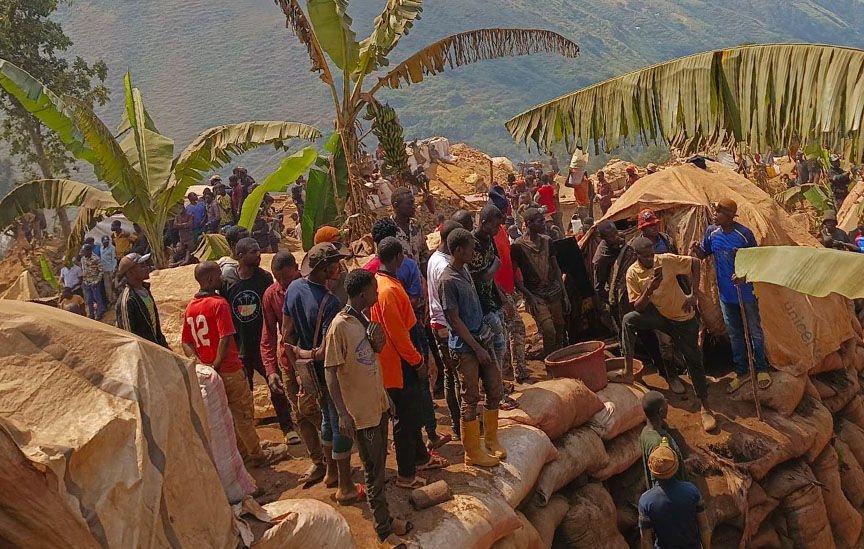In the early hours of Sunday, July 20, 2025, a series of sudden landslides swept through makeshift gold-mining shafts around Lomera, in South Kivu province, eastern Democratic Republic of Congo. The chaotic settlements, born of a late-2024 gold rush, contain hundreds of rudimentary pits, many held by hand-dug tunnels. With only bare hands and basic tools, local residents and trapped miners have been engaged in a desperate rescue effort. So far, six survivors have been brought to safety—one is seriously injured. However, access remains blocked by large rocks and debris, and the fate of dozens more remains unknown. Some witnesses report as many as 12 bodies seen, although journalist Ashuza Barack says none have been formally recovered yet.
Lomera was an obscure lakeside village of about 1,500 people until December 2024, when gold was discovered. Within months, over 12,000 people flooded in, transforming it into a maze of slopes dotted with makeshift shafts and shelters—often twenty sharing a single room. With open defecation downhill and untreated lake water used to extract gold, a cholera outbreak emerged in May. Médecins Sans Frontières vaccinated over 8,000 people and treated more than 600 cases, while installing clean water stations and latrines.
The collapse exposed the deadly consequences of the intersection between uncontrolled artisanal mining, poor infrastructure, and rebel governance. The M23 rebel group, backed by roughly 4,000 Rwandan soldiers, seized large parts of South Kivu earlier this year, including Goma in January and Bukavu in February. They have been taxing these mineral operations with scarcely any oversight or safety measures, redirecting around $5–$20 per shaft daily toward military finances rather than protective infrastructure.
The M23-appointed vice-governor, Douglas Dunia Masumbuko, attributes the collapse to "uncontrolled construction and poor maintenance of gold wells," warning more fatalities are likely. Meanwhile, officials have temporarily halted mining in parts of Lomera and deployed relief teams, but sustained action remains absent.
International agencies warn the impacts extend far beyond this immediate tragedy. The goldfields of eastern DRC fuel a multibillion-dollar informal mining economy, supplying critical metals for smartphones, laptops, and other electronics, while financing ongoing conflict. A UN Security Council resolution passed earlier this year called out illegal mineral exploitation as a destabilizing force. In 2024 alone, conflict-related disruption in gold exports cost DR Congo nearly $1.2 billion in lost government revenue.
Efforts to manage or formalize these artisanal mines have repeatedly faltered. Most pits lack proper reinforcement or ventilation. Heavy rains in the region, exacerbated by climate change, make these unsafe shafts even more dangerous. In April, a similar disaster at the Luhihi mine killed 10, according to M23 officials. In June, 17 miners died after a landslide hit coltan shafts in North Kivu. Just last week, an estimated 500 miners were feared trapped in landslides elsewhere in South Kivu; 10 bodies have since been found.
The M23 and the Congolese government signed a ceasefire in Qatar last weekend, raising hopes for peace. But the unresolved crisis in Lomera underscores one stark truth: ending violence alone won’t save lives unless mining practices are regulated and safety enforced. That will require a coordinated strategy—bringing together humanitarian aid, health interventions, infrastructural investment, and formal oversight—despite ongoing tensions.
For Lomera’s miners, however, tomorrow remains uncertain. The narrow tunnels may yet yield survivors or bear witness to more tragedy. What’s clear is that artisanal mining in eastern DR Congo is at a critical crossroads: either reforms begin now—or disasters like this will continue to unfold in a never‑ending cycle.
